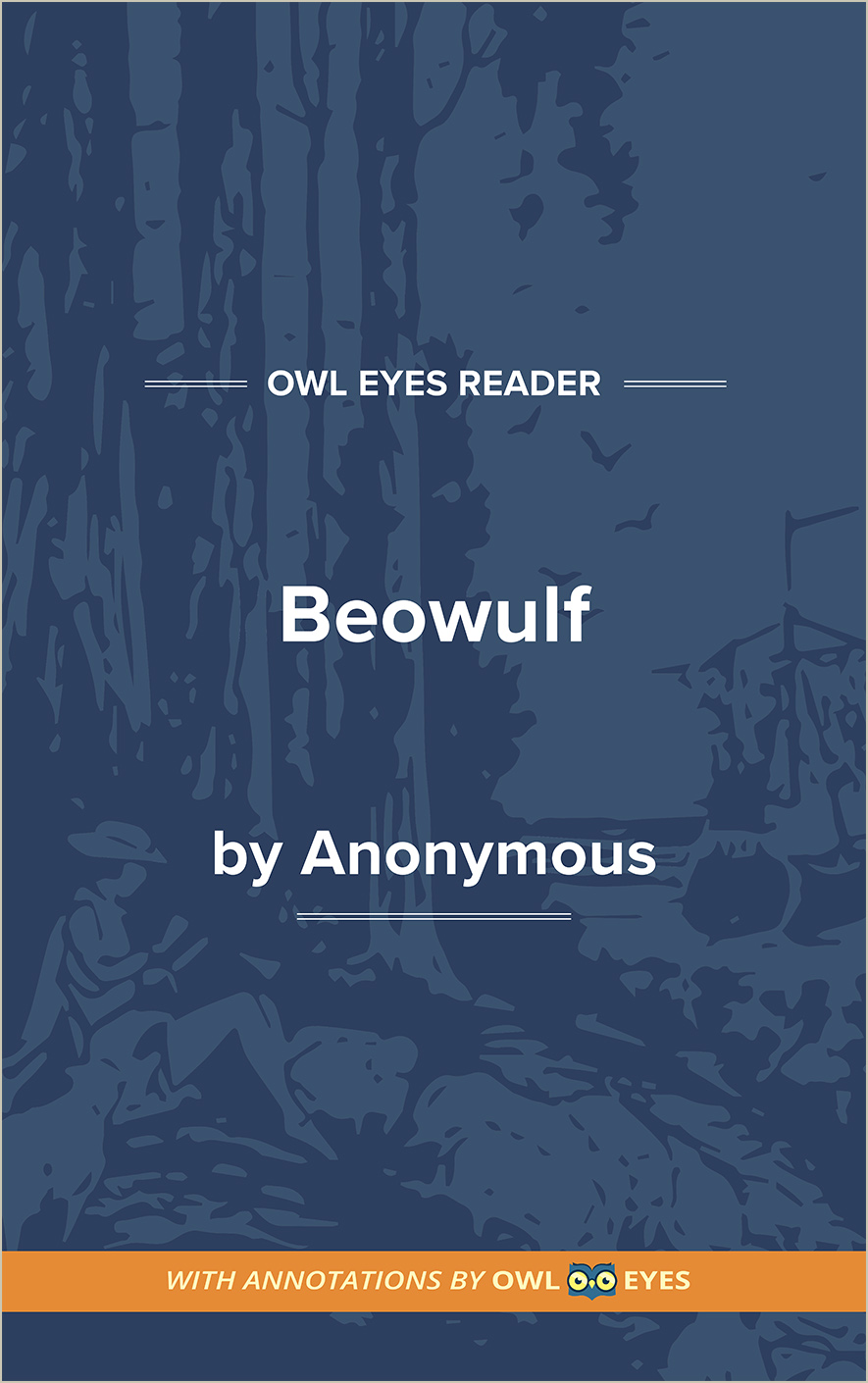Analysis Pages
Plot in Beowulf
The poem begins with Hrothgar, king of the Danes, who has recently constructed the great hall of Heorot. Hrothgar and his men celebrate the new hall, but their festivities are disrupted by Grendel, a monster who overhears the sounds of joy and grows hostile. Grendel begins killing the Danes in droves. Across the sea in Geatland—a region which corresponds to southern Sweden—the warrior Beowulf hears of Grendel and resolves to take a company of men to kill the troll. Beowulf sails to the now-abandoned Heorot and awaits Grendel’s arrival. Without the use of weapons, Beowulf delivers a mortal wound to Grendel, who returns to his lair to die. Grendel’s mother, enraged, draws Beowulf into a second battle. The poem picks up again fifty years later, after Beowulf has become king of the Geats. When a dragon emerges to attack his people, Beowulf marches off to battle one final time.
Plot Examples in Beowulf:
IV
🔒"Plainly to tell me what place ye are come from..." See in text (IV)
XI
🔒"And bade him bide with his battle-equipments...." See in text (XI)
XII
🔒"But on earliest occasion he quickly laid hold of A soldier asleep..." See in text (XII)
XIII
🔒"nor any of war-bills Was willing to injure..." See in text (XIII)
XX
🔒"Whether God all gracious would grant him a respite After the woe he had suffered..." See in text (XX)
"The hand that was famous She grasped in its gore..." See in text (XX)
XXI
🔒"seek if thou darest!..." See in text (XXI)
"Who mourneth in spirit the treasure-bestower, Her heavy heart-sorrow..." See in text (XXI)
XXII
🔒"Beowulf donned then his battle-equipments,..." See in text (XXII)
XXIV
🔒"the eddies were cleansèd..." See in text (XXIV)
"The ninth hour came then..." See in text (XXIV)
"And he cut off his head then...." See in text (XXIV)
"The hand-sword was bloody, the hero exulted...." See in text (XXIV)
XXVII
🔒"To both these peoples peace shall be common,..." See in text (XXVII)
XXVIII
🔒"Hygd..." See in text (XXVIII)
XXIX
🔒"For a brief breathing-spell, though the bride be charming!..." See in text (XXIX)
XXX
🔒"Hondscio..." See in text (XXX)
"So the Heathobards' favor not faithful I reckon,..." See in text (XXX)
XXXI
🔒"A high-rising stone-cliff, on heath that was grayish:..." See in text (XXXI)
"He fittingly ruled them a fifty of winters..." See in text (XXXI)
XXXII
🔒"The hoard-warden eagerly..." See in text (XXXII)
XXXV
🔒"When I proved before heroes the slayer of Dæghrefn,..." See in text (XXXV)
"The soul-deeps of one were Ruffled by care..." See in text (XXXV)
"Earls in armor, which of us two may better Bear his disaster..." See in text (XXXV)
XXXVI
🔒"Since his own had been ground in the grip of the fire...." See in text (XXXVI)
XLIII
🔒"They placed in the barrow rings and jewels, All such ornaments as erst in the treasure War-mooded men had won in possession:..." See in text (XLIII)

